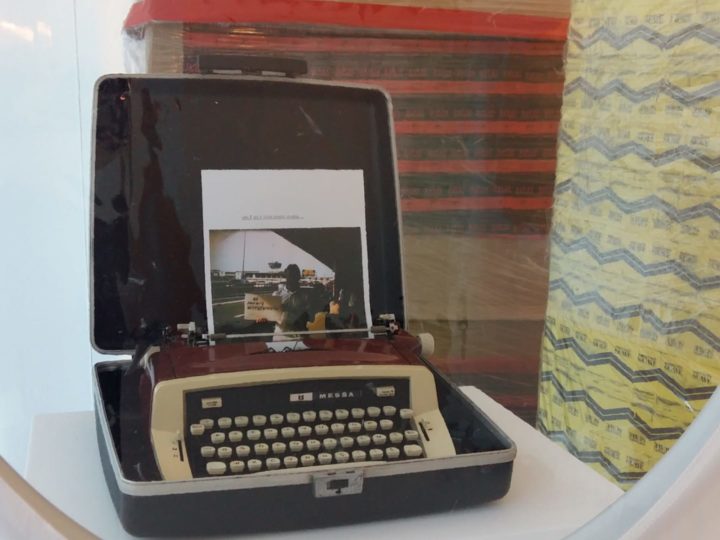IF WE WANT THINGS TO STAY AS THEY ARE, THINGS WILL HAVE TO CHANGE
What fascinates
The Prince of Salina taught his nephew Tancredi a motto for life: for everything to stay the same, everything must change. The character of Il Gattopardo, the Luchino Visconti film based on Lampedusa’s novel, is the last of an era and represents the end of a cycle of history. However, the end is not his death but his survival.
The vast cinematographic opera that the film depicts possesses a Verdian quality, at once auspicious and enchanted, in a Marxian manner, by the winds of history and swept up by the dust – which is physically present throughout the film – a sign of death, like a self-devouring and omnipresent ghost.
The film’s story, situated around the unification of Italy by Garibaldi in the early 1860s, centers on a character who decides to understand that change is a wrinkle in the surface order of things although he knows that the order of the world is political and therefore fragile. It matters little now whether his fascination is that of the meta-aristocracy, the hypothetical order in which the Marxist Count Visconti – himself an aristocrat on the knife-edge of change – also participates.
His human and telluric wisdom belongs to the world of the radical imminence of death, of the grandiloquence of the fragile and the volatile.
I believe that this tragic awareness is what fascinates João Louro in this film.
The exhibition is constructed around a dialogue between the Sicilian aristocrat and his servant. The first is prepared to change in order to survive and the latter is ready to disappear in the abyss of time in order to remain. In fact, the dialogue that is reproduced around the room, linked via electric cables to the floor, is the mirror of a conflict that is never expressed except within the order of the dialectic between the master and the slave: the former can negate himself so that the death of his position emerges as useless – thereby allowing him to survive – and the latter, who must tenaciously and inflexibly remain in his position because that is his only position. One can be reborn from the ashes of his death while the other can only be what he is: someone who is grateful to the power that created him and therefore distrustful of the power that betrays him, however much he might wish to share in it.
The political aspect of the film is therefore equivocal, now fascinated by the vitality of the revolution, now immersed in aristocratic melancholy; now taken with the opulence of the aristocracy, flaunting its decline, now looking with scorn at the wretchedness of the nascent bourgeoisie’s taste. The great political virtue of the film lies in the irresolvable contradiction between the end and the Rissorgimento, between the suffocating taste of the salon and the band, the speech, the hurdy-gurdy and the trumpet, the dust and the vote. At the time, everything had to change so that the hurdy-gurdy could continue to play its lament and the drums could continue to sound; so that the polka could continue to be danced and the salons could now take place under the tricolour flag.
I believe that this ironic tragic awareness is what fascinates João Louro in this film.
One of the essential moments in the film takes place at the ball, in a situation that is flatteringly seductive for the main character but which cannot be put to the test.
The seduction emerges as a game that can be played only when its outcome is predictable and erotic (as signalled so well by Cláudia Cardinalle’s eye). It is a quadrille danced with immense protocolaire refinements, among which the smallest deviation represents a sort of expected condensing device.
The eroticism lies in its inevitable impossibility due to the proximity of the end (of the small or the large, of what is inscribed at the end of the dance, in a farewell, and in the other, the lattermost, the petite mort or the death that takes a capital letter).
I believe that this tragic erotic awareness is what fascinates João Louro in this film.
In the last sequence of the film its protagonist, returning home in the Palermo night, encounters a priest and his acolyte who are going to administer extreme unction to a poor man. He kneels on the road when the procession passes and rises to turn down a gloomy and dimly lit alleyway. We do not learn whether he immerses himself in the deepest night, the metaphor of his inevitable death, or whether that is the alleyway where his lover lives. The metaphor of the plunge into the darkness of the night opens up this ironic gulf between pleasure and abandonment, between the relativity of extinction and the extinction of all relativity.
I believe that this indecisive tragic farce is what fascinates João Louro in this film. I know that it is what fascinates in the way that I imagine that these ghosts literally assault him.
Rather: what interests me is the way in which he responds to their assault.
Delfim Sardo


![JOHNNY CASH, ROY ORBISON E ELVIS PRESLEY [solo show]](https://joaolouro.com/wp-content/uploads/2008/11/IMG_2132-720x540.jpg)
![THE RETURN OF THE REAL – JOÃO LOURO [solo show]](https://joaolouro.com/wp-content/uploads/2012/11/the-return-of-the-real-720x540.jpg)